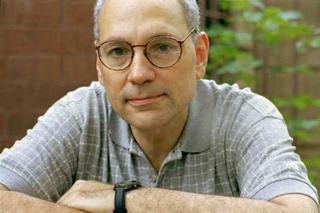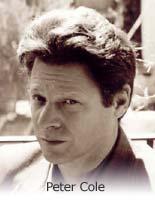Dear Eric --I won't post my own emails back to Jerry on these matters, multiply interrupted as they were (those pesky kids!), but will compile, condense, improve, and post a reasonable facsimile of them tomorrow--having too much fun to stop--
I was going to drop you a note (not necessarily for publication) to clear up my own thoughts about the secular-religious question, but your quotation today really took care of that for me. What I found most puzzling before this was the idea attributed to me that "secular Jewish culture precedes religious Jewish culture, ontologically and historically, just as poesis always procedes religion." That first part at best sounded cleverly engimatic, let's say, but ultimately incomprehensible, and I couldn't imagine having said it. As to poesis always preceding religion, I would more likely say that poesis (poetry writ large) is closely tied in its origins to the sacred or numinous, therefore to whatever forms of religion are coterminous with that.
Some other thoughts regarding the conference as such:
-- I was disappointed or uncomfortable that I seemed to be the only one at the conference making the linkage to older religiously-derived language practices that are not only crucial to an aspect of my own work but to that of poetic compadres like Celan and Jabes (notably) or, in the American context, Meltzer, Hirschman, Tarn, Berman, Schwerner -- even for that matter non-Jewish poets like Duncan and Kelly -- though I realize that this was at its hottest a couple of decades ago. I suppose too that that titling the conference "secular Jewish culture" encourages a separation of "radical practice" from anything that isn't "secular" in the most obvious sense of that word. And needless to say, almost all of those at the conference (myself included) were unaffiliated or unbelievers when it comes to religion.
-- It also seemed to me, as apparently it did to you, that "Central and Eastern European Jewish and its Yiddish-American offshoots" -- as you put it -- were too much emphasized, though I understand that the contemporary context of the conference made this pretty much unavoidable. This also seemed to narrow itself too much to pop culture, which I've also followed & sometimes appropriated but which I would think of as peripheral rather than central to the poetics in question. And it seemed to me that what was said about all that wasn't in any sense new or radical but what would be expected (at least for people of a certain age) in any pop discussion of growing up Jewish in America.
-- For my own part, Poland/1931 was heavily ashkenazic, as it would have to be, but in A Big Jewish Book and elsewhere, the topography expands greatly and the specifically Yiddish or Yiddish-American or Jewish-American entries are proportionally a very small part of the mix. (Even so, that's one of the places where I come from, & no denying.) My own sense of liberation, in doing this, was precisely to open up the field & overthrow as many stereotypes & prototypes as possible.
-- As for the lack of Israeli reference, which is also true I suppose for A Big Jewish Book, I'm aware of a number of poets in Israel but find them overshadowed by the diaspora figures of the last hundred years or so, those whose radical practice is significant enough (and arguably Jewish enough) to make the central issue of the conference worth taking up in the first place. It strikes me in fact that all of us at the conference were diaspora people and, with the possible exception of Hellerstein, without hostility but with very little commitment, political or cultural, to Israel as such. (But here I may only be speaking for myself.)
-- Also, with regard to diaspora, I remember when A Big Jewish Book appeared that there was some talk of a similar Irish diasporic assemblage (Bob Callahan and Robert Kelly, if memory serves me) and an Italian one. I can think too of African and Chinese possibilities, as well as others that would correspond to the way peoples & languages travel around the world. That seems to me to be part and parcel of what Pierre Joris calls a "nomadic poetics," and Pierre in fact is now beginning work on a Maghrebian anthology with a 2000-year a mix of poetries, largely but not completely Arabic, that should prove to be nothing short of astounding.
I would point out also that Jewish poetry doesn't imply a special grouping, except maybe for conferences like this. In the present diaspora context the groupings to which we may subscribe -- speaking for myself at least -- cut across ethnic and national boundaries, and our closeness to other poets rests on very different grounds. American poetry, say, is for me a much tighter configuration, but even here I feel no closer to American poets than to poets from France or Japan or Mexico or (name it) with whom I've often collaborated in what seems to me to be an effort or a work in common.
In short I'm glad that you've opened this up for discussion in a way that goes well beyond what we should have gotten to at the conference, but didn't.
With thanks for that & warm best wishes,
JERRY
E



